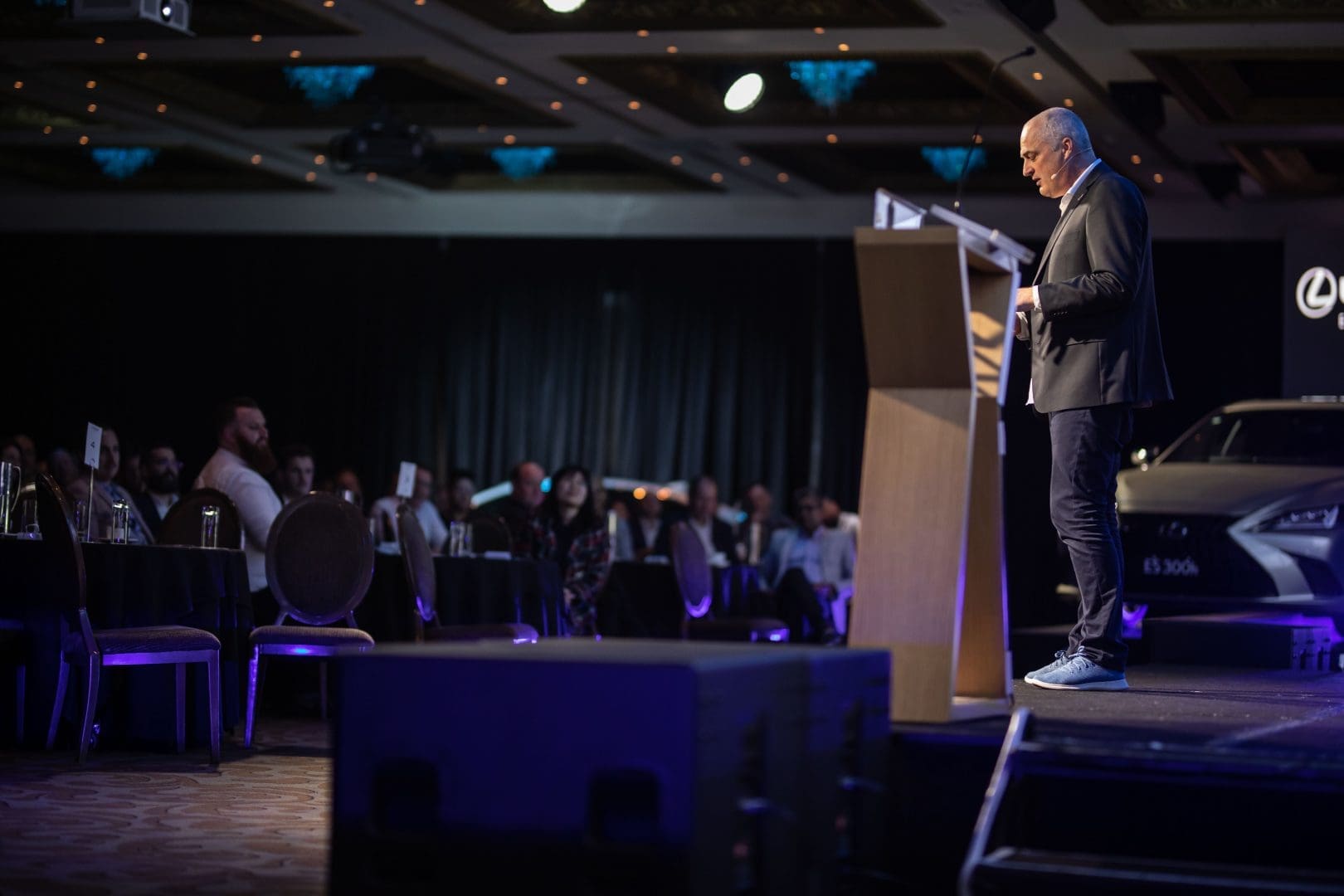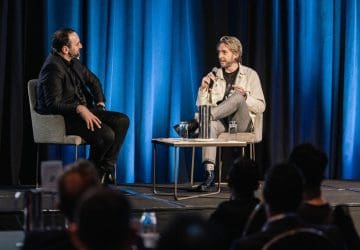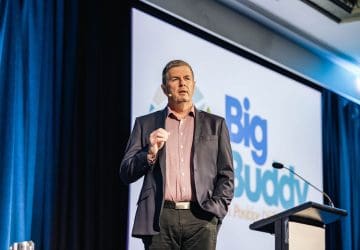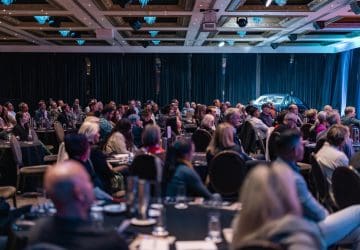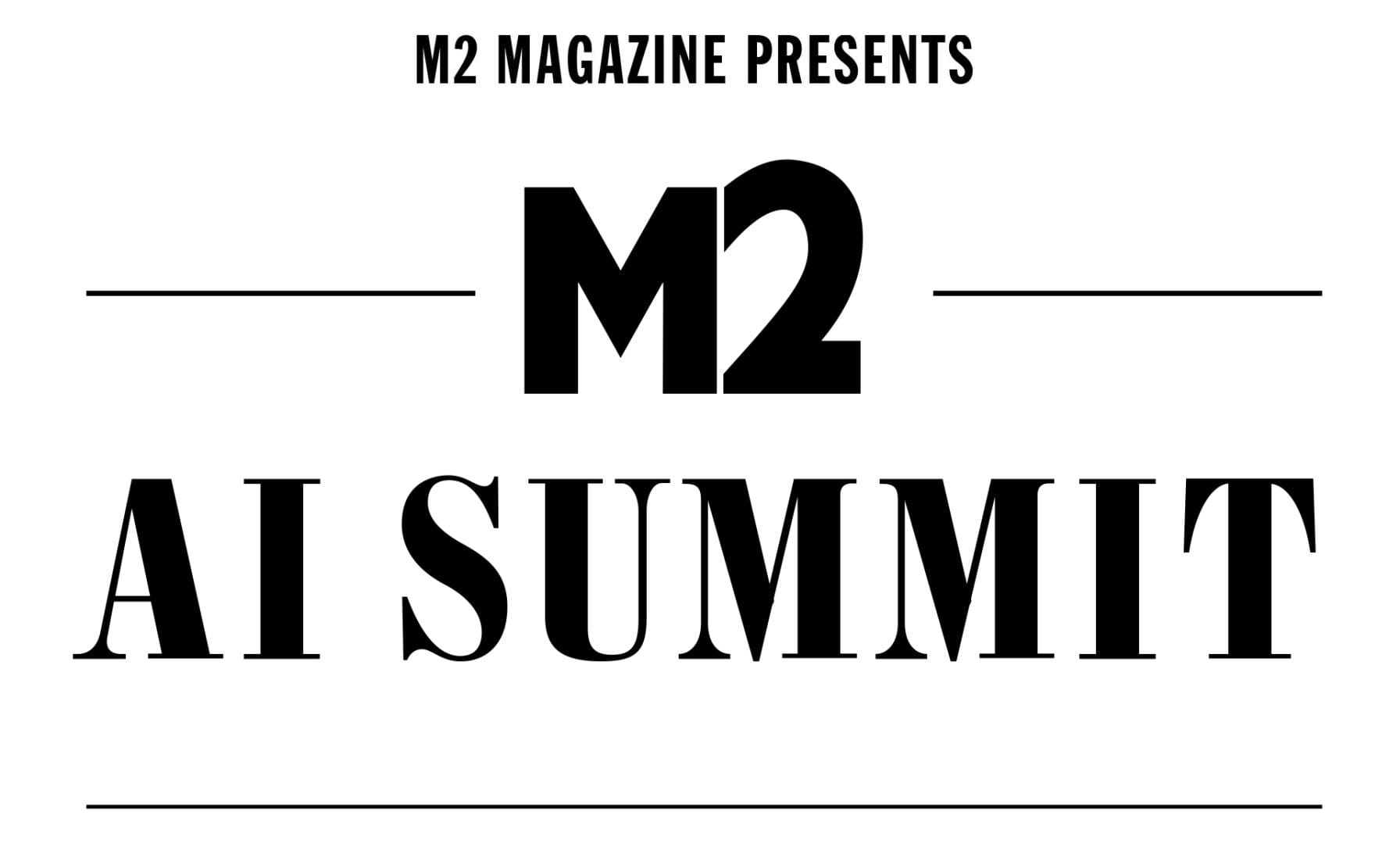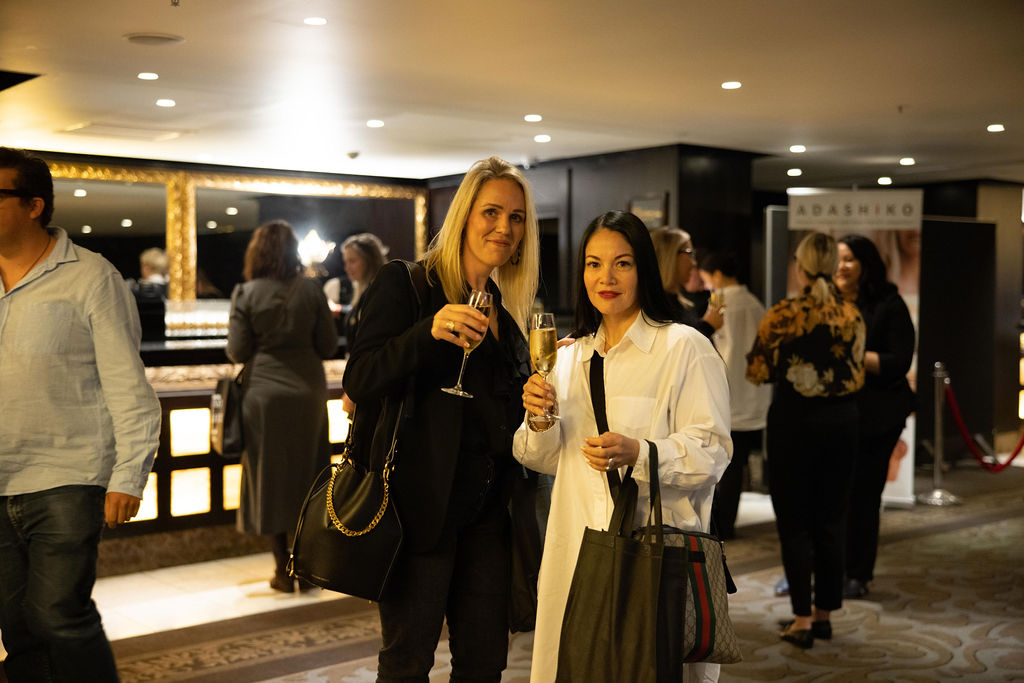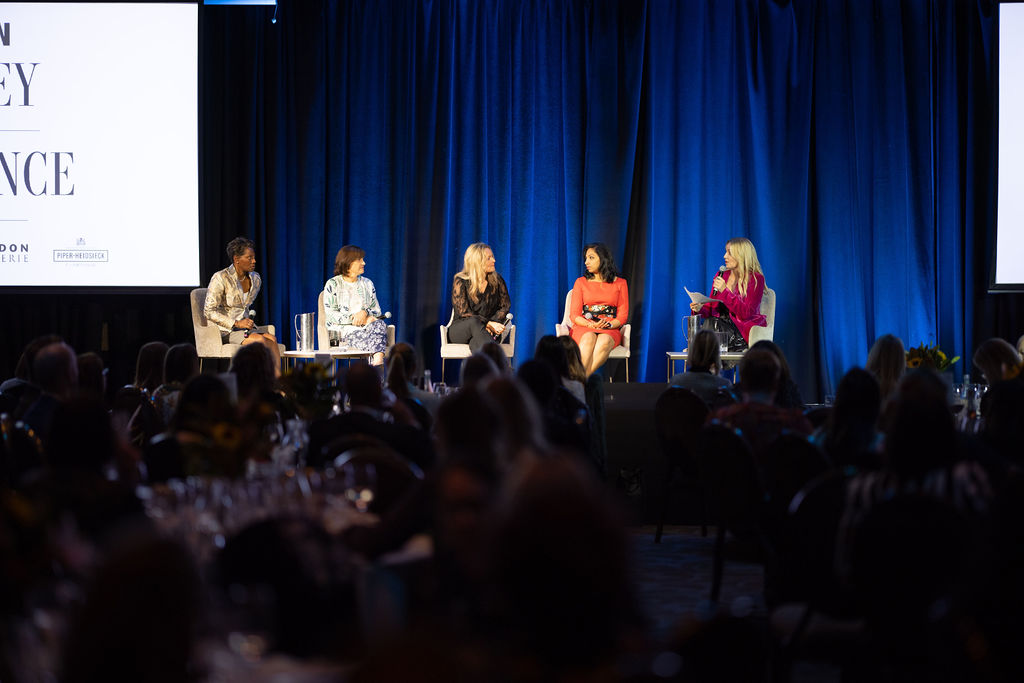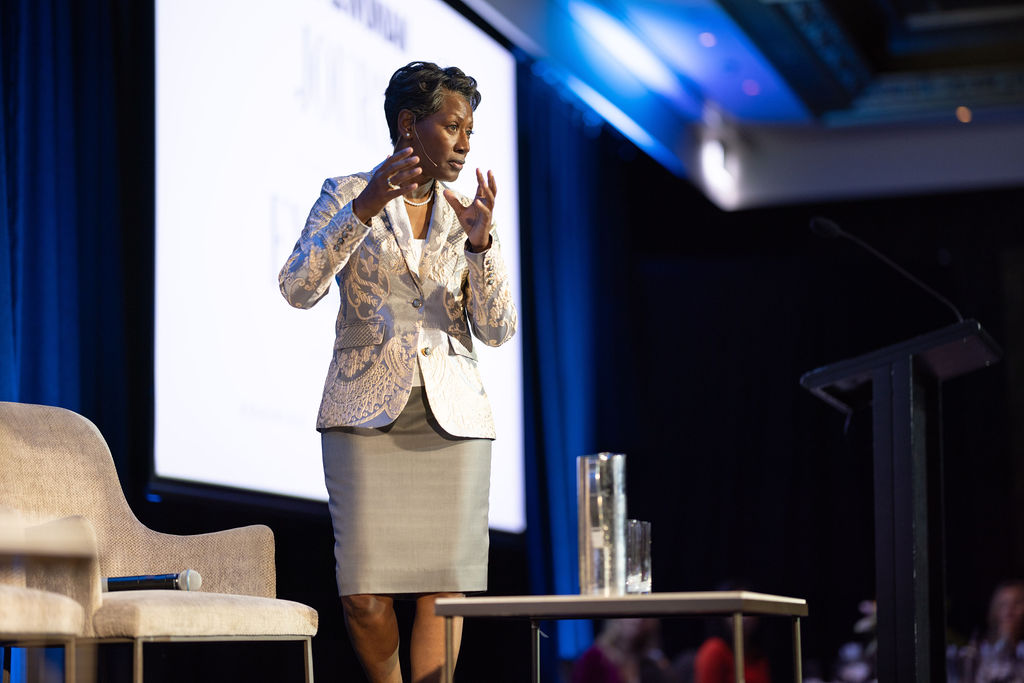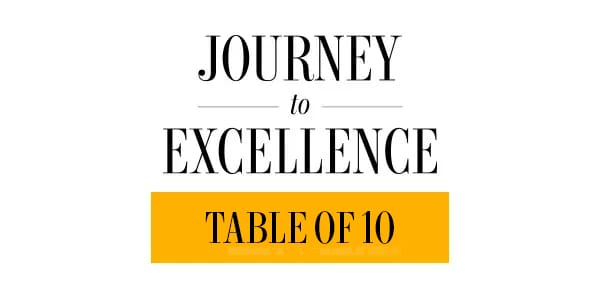‘You’ve got less than a year to live.’ How Being A GMO Beat Cancer
The following is the transcript of a talk by David Downs at the M2 Summit, 20 November 2019.
David Downs works with the technology sector to help fast growing tech companies grow internationally, and leading a cross-government project for the agritech sector
For more information on our Summits, visit M2summit.co.nz
My story starts about a year and a half ago as I sat in a doctor’s office in North Shore Hospital in Auckland and the doctor said to me, ‘David, you’ve got less than a year to live.’ For all the men in the audience, this is a story about men’s stupidity, because I was feeling really sick and I had felt sick for a long time.
I had the flu and I felt like I was under the weather and I ignored the symptoms for months and months and months. I refused to go to the GP and thought I was going to get better.
Finally, I went to the doctor, after much encouragement from my wife. When I went into the doctor, I said, ‘Oh look, I don’t want to be here, I’ve just got a mild touch of the flu. It’s nothing really.’ And she said, ‘Well, tell me about the symptoms.’ And I said, ‘I’m feeling under the weather. I’ve been feeling like that for six months. I sweat at night. I’ve got sore bones, I’m a bit itchy and I’ve lost six kilos in three weeks.’ She made me go and do a scan and what I thought was a mild touch of the flu, turned out to be a pretty major dose of a cancer called lymphoma.
Lymphoma is a cancer of the lymph nodes, which is part of the blood immune system. I’d had this cancer for quite a while because they did a CT scan and they discovered I had a tumor about the size of a basketball that was fitting in and around me. I had obviously been sick for probably six months, maybe more, and had ignored the symptoms. My life essentially changed immediately.
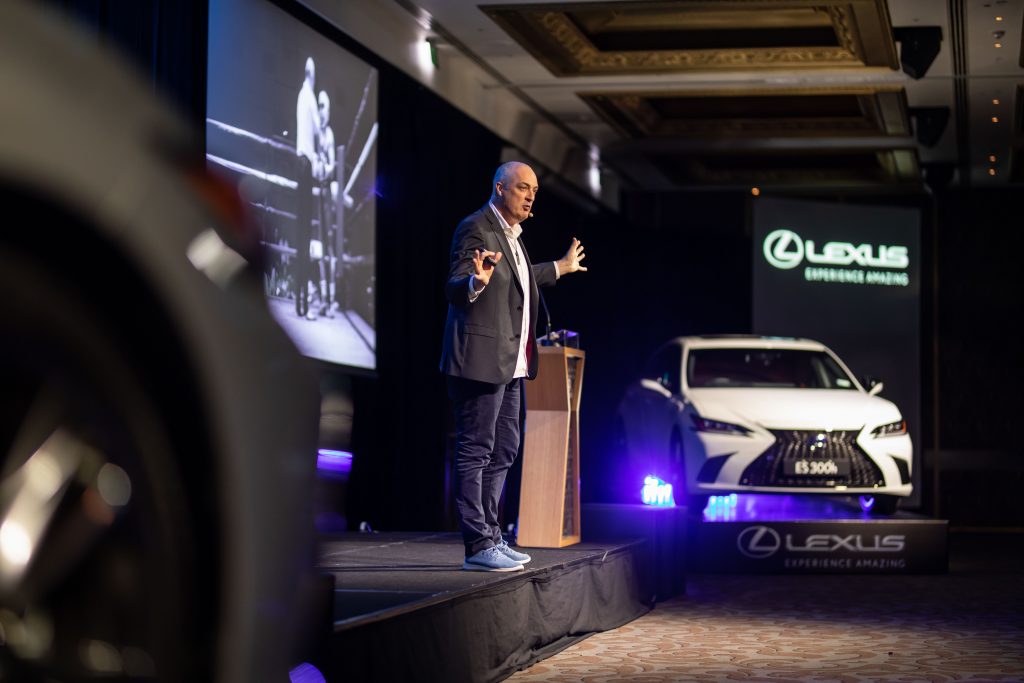
The doctor said, ‘This is a huge problem. You’ve got to do something about this immediately. We need to get you to chemotherapy. You need to stop work. You need to stop everything and save your own life.’ So I had to ring up my boss and talk to everyone and say, ‘Look, I’m not going to be back at work this afternoon because I’m now cancer guy’.
It was a really strange situation, but I had decided really early on, at that moment, I was going to be as optimistic and positive as I could. The doctor told me that there was about an 80 percent chance of beating this cancer in the first three to four months. I’m like, ‘Okay, cool. That is 80 percent chance, it’s essentially done.’ I’ll take those odds. All I need to do is basically lie around for six months and I’ll be better. I’ll be really positive and optimistic.
I went into it with that kind of attitude, but the first time I got really scared was when I saw the hospital food. That’s when it really hit home that things are different. David, you’re now eating diabolical, overcooked white meat covered in white sauce and that’s it for the next six months.
It was shocking, but I basically had to get myself into this mode. I’m a business person, I worked for New Zealand Trade and Enterprise, a government agency. I’ve worked for Microsoft. I’d been a business person, like many of you in the room, and suddenly I found myself in this context where I was out of my comfort zone in this hospital room.
It wasn’t my normal kind of environment. I didn’t really feel like I belonged there. I didn’t know anything about it. There were strange noises and strange smells and doctors and nurses saying weird words that I didn’t understand. It really put me into this mental framework of being a victim, of being a part of a system that things were happening to me.
I wasn’t in control. You’ve seen patients on TV and when you go into hospital and they put a gown on you and then they start talking about how you’re sick and you’re suffering, you start to actually act like the patients on TV. You start shuffling your feet and feel a bit sore and you assume this role of a victim.
It really does things to you head when you let that happen. I remember saying to Katherine, my wife, ‘I’m not enjoying this cancer thing as much as I thought I would. This is really not me. I don’t like it.’ And we decided pretty quickly that we needed to change something.
I couldn’t change the hospital room, I had no choice. They realised pretty quickly that my cancer was particularly pernicious and disgusting. I needed to be in hospital five or six days at a time, having this very slow chemotherapy dripped into my veins and I couldn’t leave the room. I couldn’t change that. The thing I could change was what I did about it and how I thought about it. That was an enormously powerful thing.
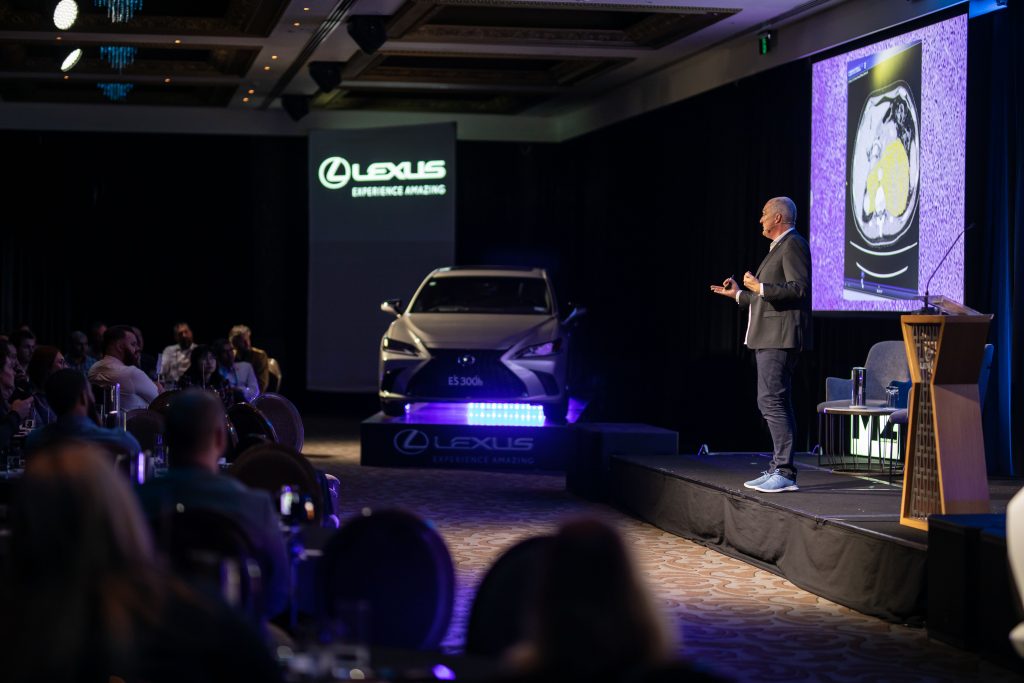
We decided that instead of going into hospital, we would tell everyone that I was going on holiday. The first holiday we went on was to Fiji, which was a nice little sojourn. We started getting some props and costumes and I started dressing up the room. We went to Paris. All the places I’d ever been or wanted to go, we started making lists. I got my kids to go out and get props. It got everyone enthusiastic about the idea that I was going into hospital and the weeks and weeks just flew by because we were doing this thing.
It really empowered me and made me feel like I was more in control of the environment, which is a really important thing for humans to feel like we have some control over our environment and our sense of wellbeing. The doctors and the nurses and friends and family and everyone got in on it. I made a rule that anyone could come and visit, but they had to come in costume.
It was a really empowering time for me. The first key lesson is that sometimes in life, you don’t get to choose the room that you’re in. The thing you can choose is what you do about it and how you think about it and how you respond. It’s an enormously powerful thing when you really grasp that because it protects that part of you that is the control system. That was the key lesson there. I couldn’t change the room, I could control and change my attitude. I wanted to be very optimistic about about it.
My next lesson for you is that actually some quite good things happen when you have cancer. I remember saying to my mother, ‘I’m going to learn as much as I can and be as positive as I can about my cancer.’ And she said, ‘David, you’re too optimistic. You can’t polish a turd.’ What I discovered having cancer is you can’t polish it, but you can roll it in glitter. What that means is that there were many good things that came out of having cancer.
Someone in the room will be going through a cancer journey, many people probably. My story is unique, it’s not the same as everybody’s. My heart goes out to you for what you might be going through at the moment and I certainly know and live it. My story is a bit unique it, and I’m certainly not solemn about it. I take it very seriously, but I don’t treat it very solemnly.
I had decided that I want to be as positive as I could. And what positive meant to me was, what can I actually get out of this experience? What can I learn? The first thing I learned is that people are really nice to you when you’ve got a terminal illness. Who would’ve thought?
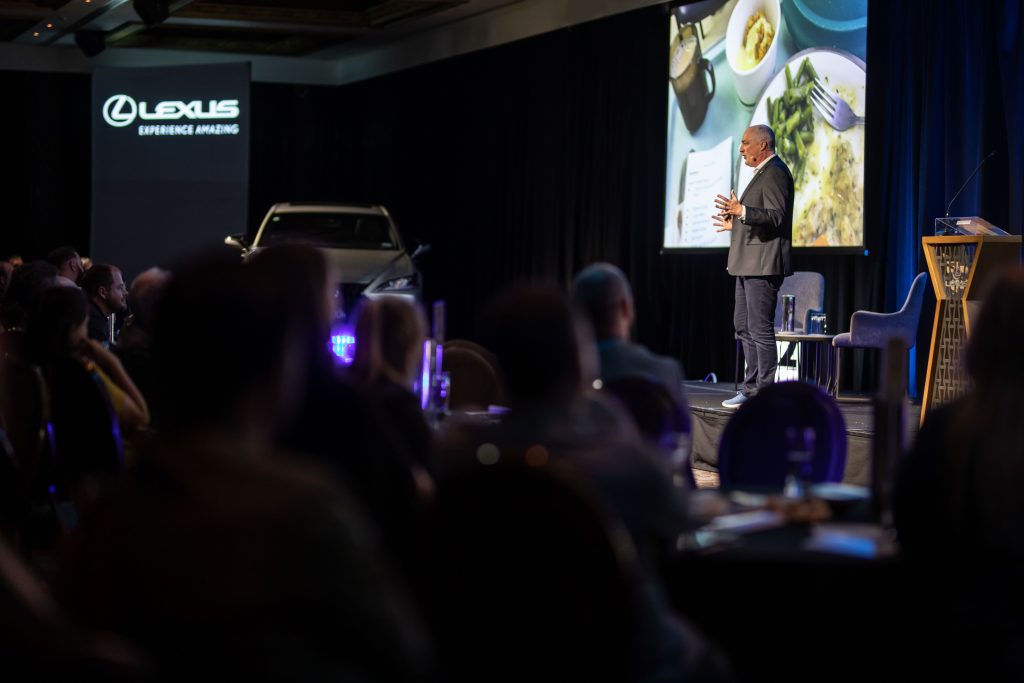
I’d be at home struggling to get off the couch and my sister would say, ‘Oh, can I make you a cup of tea?’ And I’d go, ‘Sure, that’s cool.’ She’s never done anything for me before. And then I’d started to realise I can use this and say, ‘Oh sorry, I can’t help with the dishes because I’ve got cancer.’ And ‘Sorry Katherine, I can’t come visit your mother this weekend because of the cancer.’
All the kids were saying, ‘There’s Dad, playing the bloody cancer card. He’s always playing the cancer card.’ It became a joke. My friends at work found out about this and they made me a set of cancer cards. I give them out to people and play them when I don’t want to do something. When I want my son to mow the lawns, I just picked out the card and say ‘Ha, you have to do it. I’ve got cancer.’ Positive things happen.
The other thing that happened, of course, is when you get cancer, when you have chemotherapy, your hair can fall out. I discovered that my hair was going to fall out and the kids and I decided to take control of the situation. We went down to the barbershop and we shaved all my hair off because I didn’t want to wait for cancer to take it.
The kids decided this was a cool thing because they could start to dress me up. The chemotherapy is awful, but it has these amazing side effects. They could start dressing me up as some of their favourite superheroes. We had a really nice afternoon of them thinking of people that I could look like. It was quite fun actually and it just gave me control of my environment.
The other cool thing is that I discovered that my hair was falling out at about the same time as Leukemia & Blood Cancer New Zealand, which is a charity that helps patients with blood cancers, were having their annual appeal. It’s called Shave for a Cure. My hair happened to be falling out at the same time they were doing that, so I signed up and all these people started giving me money. My hair was going to fall out anyway, but I was raising money for this charity.
Six months go by, six months of me being optimistic and positive and et cetera, but every time we stopped chemotherapy, the tumors kept coming back. The cancer kept returning. It got to the point where the doctor said to me, ‘This is the third or fourth type of chemo we’ve tried, we’ve been doing this now eleven months.’ They did a PET scan and more tumors had just arrived. They said, ‘We don’t know what to do. We’ve run out of options. We think you should perhaps think about going into hospice. We think you should go home and get your affairs in order.’
I thought, ‘Oh my God, what are we going to do? This is like, this is worst case scenario. I’m terminal.’ They told me I’ve got less than a year to live, but this is when luck suddenly kicks into my story. It was lots and lots of things happening, which has lead to me being here today.
When I first was diagnosed, one of the first things Katherine and I decided was that I wanted to be a participant in my own rescue. We weren’t going to sit back and passively let doctors do things to us. We wanted to understand and learn and we were researching all the time. We researched all about my cancer, all about the chemo, all about different options and opportunities and what could we do and plan A, plan B. There was a lot of hard work going on.
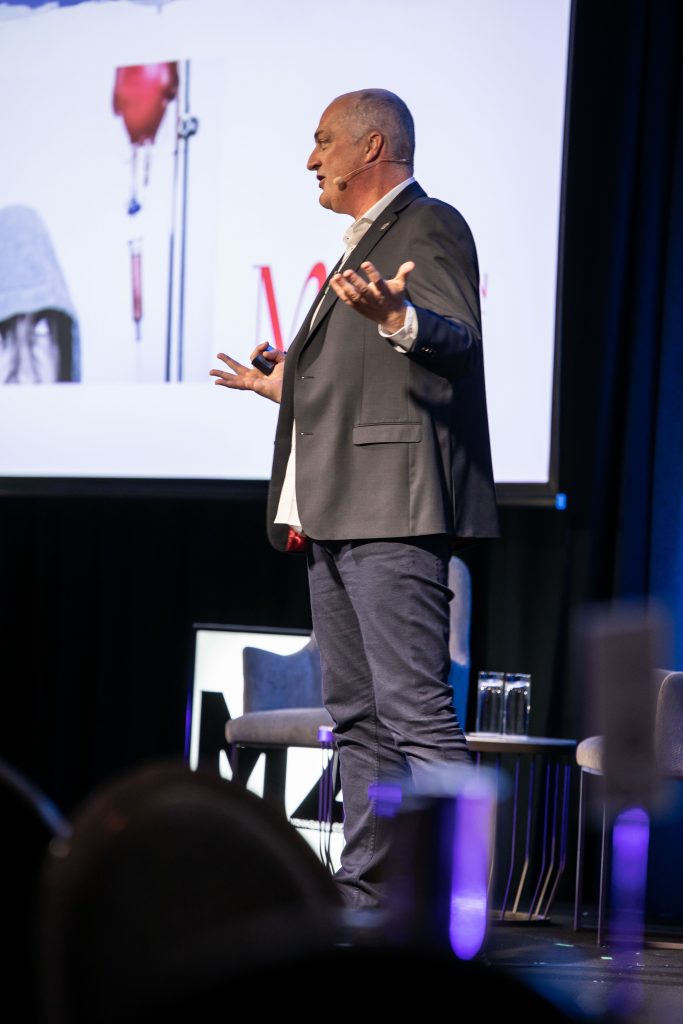
The other hard work that was going on for me was I was writing. The day I got diagnosed with cancer, I decided I would write about it because I couldn’t do anything else. I was going to be stuck in a hospital for a week. I wrote a column and I sent it off to my friends at Stuff and they said, ‘Oh, we’ll publish this. Let’s do one a week.’ And I thought, ‘Oh yeah, we’ll do like six or seven.’ I did sixty of them over a year and a half, every week writing a column about what it was like. Sometimes it was pretty bleak. Sometimes it was quite entertaining and funny and the columns have actually now become a book, called ‘A Mild Touch of the Cancer’.
Ultimately, these are some of the things that saved my life, because people all around the world started sharing these columns and reading them. I was getting these messages of support and encouragement and it was really cool, it was great. And the day that the doctor told me that the cancer had come back now for the fourth time, I got a message from this amazing person who had read my column. It said, ‘I just wanted to reach out to you. I wanted to wish you well. I know you don’t know me, I don’t know you, but I’ve read your columns and I just wanted to say thank you for sharing your story.’
It’s a really nice, lovely email and I thought it was quite detailed so I looked him up. He turned out to be the Head of Immunology at Pfizer, which is the big drug company based in New York. His story, I subsequently found out, was he’d been to New Zealand on holiday, loves New Zealand, reads New Zealand newspapers because he thinks they portray a better view of the world than the American newspapers. He said to me, ‘If there’s anything I can ever do to help, let me know.’
So the day I was terminal, we got this message – amazing coincidence and luck. I went back to him straight away and said, ‘Yes, I need help. If there’s anything you can do, now is the time. I’ve been told I’m terminal, I’ve got no more options in New Zealand. I have to go to hospice.’
Within a few hours, he had got me in touch with a researcher at Harvard University. The next day Katherine and I are on the phone to this guy at Harvard University. We had a big chat about my cancer and my prognosis and what I’d done. And the guy said, ‘Look, I don’t want to promise too much, but I think you could be a candidate for a clinical trial for a whole new way of treating cancer that we’re trialing here in Boston. But you have to get here.’ It was an amazing. We hung up the phone and we’re like, ‘Yes, there’s another plan.’
We aren’t at a dead end anymore. I remember the next day, I had the joy of going to see my doctor here in New Zealand and saying, ‘Look, we’re not going to follow your advice because we met a guy on the internet.’ Doctors love hearing that sort of thing, but they realised pretty quickly that we were dealing with the people who are at the forefront of medical research.
I was so lucky until the next day when I got another email. This time the email is from the billing department of the hospital, which is pretty scary. The billing department lady says, ‘Dear David Downs, I just want to let you know that the cost of your trial could got to $1 million. Please let me know if you’d like to proceed.’
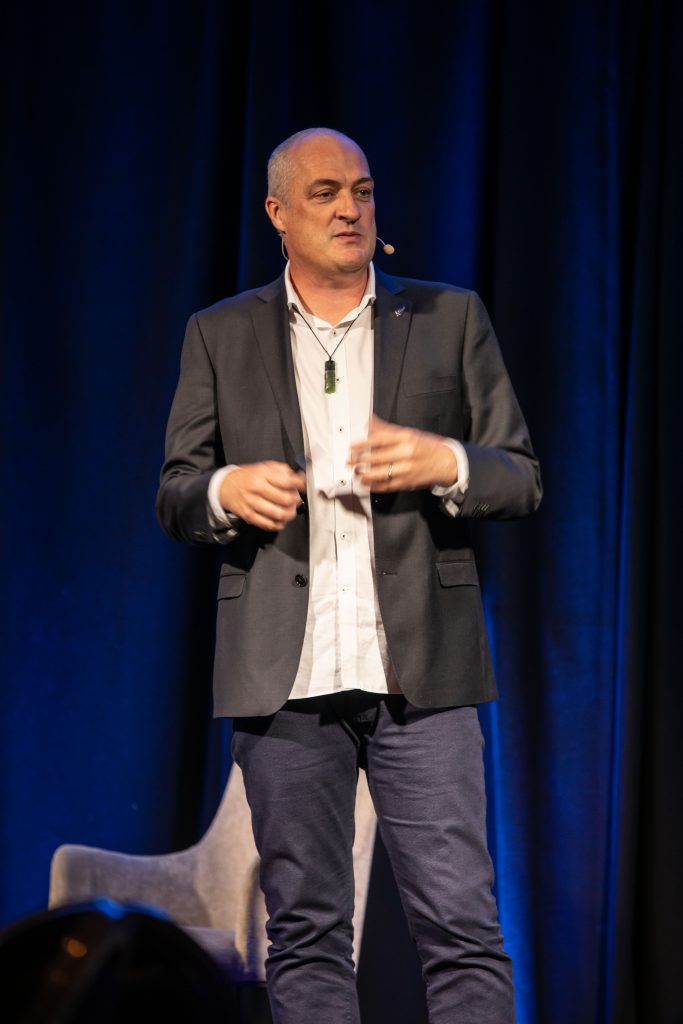
We’re going, ‘Oh s**t, we don’t have a million US dollars.’ So the first thing I did was call her up and I said, ‘Would you offer a discount for cash?’ And they said yes, which was pretty cool. So I said, ‘I’m going to have to go and talk to the bank. Could you please send me maybe a detailed cost estimate?’ So she sent me a breakdown which showed it came to $750,000 USD.
I’ve still got this major problem on my hands. $750,000 USD for treatment for a cancer that may or may not work and I didn’t have the money. This is where luck kicks in again. This dumb luck is in the form of friends and family because at one point, we thought we were going to have to sell our house. We had no other way of getting money, but we could sell it and get some of the money. But my friends and family didn’t want us to sell the house, they wanted to help us out. They did a Give A Little page, which was amazing and horrifying and embarrassing and humbling, but wonderful all at the same time; this real complex set of emotions.
And then some other friends of mine decided they would put on a show. They’re comedians and they put on a show, which for copyright reasons we called “Seven Daves”. That was an amazing experience too. Between the two things, we didn’t get all the money, but we did get a substantial portion.
We got $200,000 USD, which was enough for me to ring up the hospital in Boston and say, ‘I’ve got an idea, could I pay you a third up front? And maybe the rest when I’m better,’ which they saw straight through. But anyway, they let me do the third up front and I found myself in the hospital in Boston, at Massachusetts General Hospital. It’s an incredible series of luck and coincidence that led me to be in this place two weeks later, helped by all these friends and family and hard work and amazing other things.
What I discovered is that luck has many components. Luck is about hard work and it’s about good friends and it’s about how you perceive life. If you put yourself out there as an optimistic, positive person who sees opportunity instead of challenge, I’m not saying I’m always like that, but in this particular scenario I had decided I needed to be like that. If there was an offering or an opportunity somewhere in the world to save my life, I wanted to be open to it. And lo and behold, it happened for me. I was very lucky to be in that situation.
I want to tell you about this amazing cancer treatment I had because it’s a breakthrough. The reality is we’re all getting cancer all the time, because cancer is just your own cells splitting in such a way that they become cancerous, but the body can’t see them. The immune system just thinks they’re normal cells; they’re hiding in plain sight.
The theory behind this is we could somehow teach the immune system, which has evolved over hundreds of millions of years, to recognise cancer. Instead of putting drugs in, could we teach it? So they put me on this apheresis machine and they skim off a thing called the T-cell, which is a component of the immune cell. They genetically re-engineer the T-cell by putting a new piece of DNA into that cell to make it sprout these chimeric antigen receptors, or CARs, which now have got the ability to recognise my particular type of cancer.
Then they replicate and grow them in the lab in their millions, and then they put them back in the body. And now this time, these new modified T-cells can recognise some of the lumps and bumps on the outside of the cancer cell that make it a little bit different than the normal cell. They latch on and they do the normal immune response, which is basically to tell a foreign invader or an infection to die. It just sends it the kill signal and that cell just melts away. It’s an incredible breakthrough in cancer research, so different than the techniques we’ve had up until now to deal with cancer. This immune therapy is showing enormous promise around the world.
They sent the T-Cells off to a lab for about a month, and they brought them back in this tiny little vile. 2.5mls, or $750,000 USD worth, of these modified T-cells. They then just inject them back into the bloodstream. And I waited about two weeks and after two weeks I felt like I got the flu. Because my immune system thought I just had the flu and was trying to clean it up. You get the flu symptoms; a slight headache, sniffly nose.
Four weeks after I had these T-cells, I went back into the doctor’s office. We did a PET scan, we did blood tests and he came back out and said, ‘This is the best possible outcome. You’re in complete remission. There’s no sign of cancer left.’ This is four weeks after I had been terminal. I had less than a year to live; four weeks later, finished, done, no cancer.
These T-cells are the second most expensive substance in the universe at the moment, after antimatter. They’re incredibly expensive and people ask me if it will ever come to New Zealand, and I say, no way. We’re tiny little New Zealand. There’s no way we’re going to be able to have this treatment here. I was at Harvard Medical School in Boston, best of the best in the world. There’s a huge drug company spending billions of dollars on research. They’re never going to come to New Zealand.
And then I got a phone call from the Malaghan Institute, which is a Wellington-based cancer research institute, who are privately run. There are sort of an independent charity. A hundred-odd scientists in Wellington who have for years been working on the immune system and, lo and behold, had been working in this exact type of area. And I discovered that they have not only got the same type of cancer therapy in Wellington, they’ve improved on the one that I had.
So they have now got this CAR T-cell therapy here in New Zealand over the last year. We’ve been raising money for them and now they’ve got enough money to do a trial, just for twelve patients initially, but it will grow from there to many hundreds. Here in New Zealand today, we have the ability to treat cancer in this way, which is absolutely unbelievable. This is science fiction almost and the fact that New Zealand is up there with Harvard University is unbelievable.
Q&A with Dominic Bowden
In the face of adversity, how did you keep going?
Well, the alternative was not good. Right at the beginning, I did feel that pressure of this weight on my mind. The reality is you get to choose your own emotional state. I’m not talking about people with serious mental illness, but most of us get to choose our attitude. It’s enormously powerful.
It actually is one of the few things you can remain in control of when you’re very sick. I’d be at my worst in hospital, feeling absolutely crap. Wiped out, couldn’t move and the thing that made me feel better was, how can I do something nice right now? How can I help someone else? So I’d smile at the nurse or try and make them laugh or whatever. That was my way of doing it. It just gave me that sense of control and purpose.
I think that people sometimes think ‘I’m just not going to do that. It’s just that it’s too far afield.’ So even when you allow yourself to ponder making those decisions, what advice would you give on that?
You’ve got to think about the whole system around you; the people, the friends and family. I was talking to another friend who’s been through a similar thing and you’re not one individual. It’s actually much harder for other people to see someone who’s sick or going through tough times.
If you can get yourself out of your own internal mindset and into a mindset of, how do I help other people go through this? How can I make my kids feel better about the fact that I am really sick? How can I make my doctor feel better about the fact that she’s going to have to tell me some really bad news? That’s not being too Pollyanna, but it really does change your mental attitude.
Can you give us some insight into what that moment is like after you had been through this crazy journey and you find out that it had gone?
The doctor told me that there’s a bit of a survivor guilt thing, which is really unexpected. He said, ‘You’re all better, you’re all cured.’ And I went, ‘What do I do now?’ And he said, ‘I don’t care.’ Someone’s been telling me what to do for a year and a half and I don’t know what to do now.
Afterwards I was like, ‘Oh my God, I’ve survived, other people don’t. Do I deserve it?’ It’s certainly been a really complex set of emotions that carries on in the family. We’re just lucky to be able to do something.
When I met the Malaghan Institute, I was really chuffed that I can do something useful to make some sense of all of this stuff. It makes me sound like a saint. I’m not, but that sort of thing creates some sense of purpose and meaning.
Find out more about our next event here

